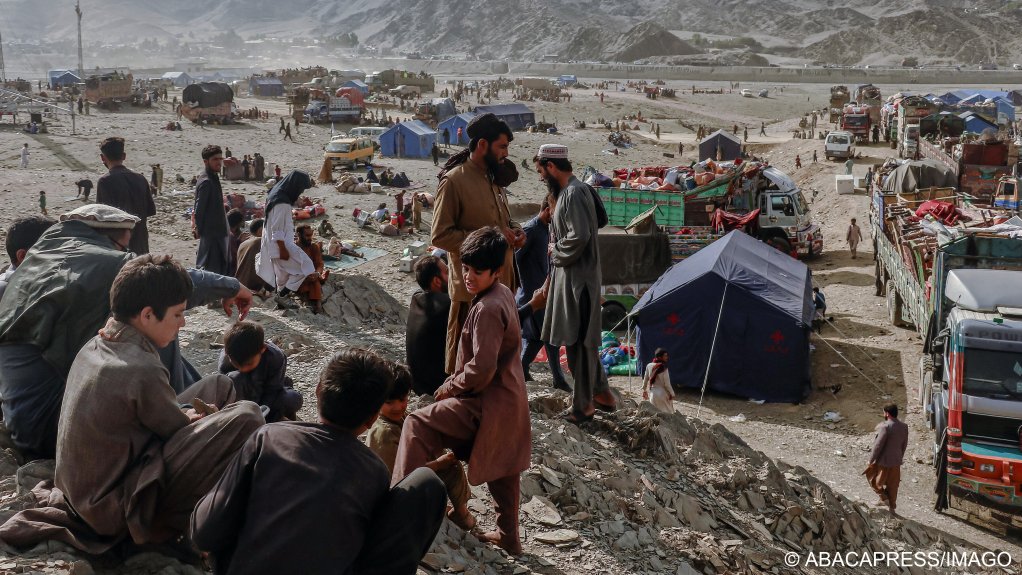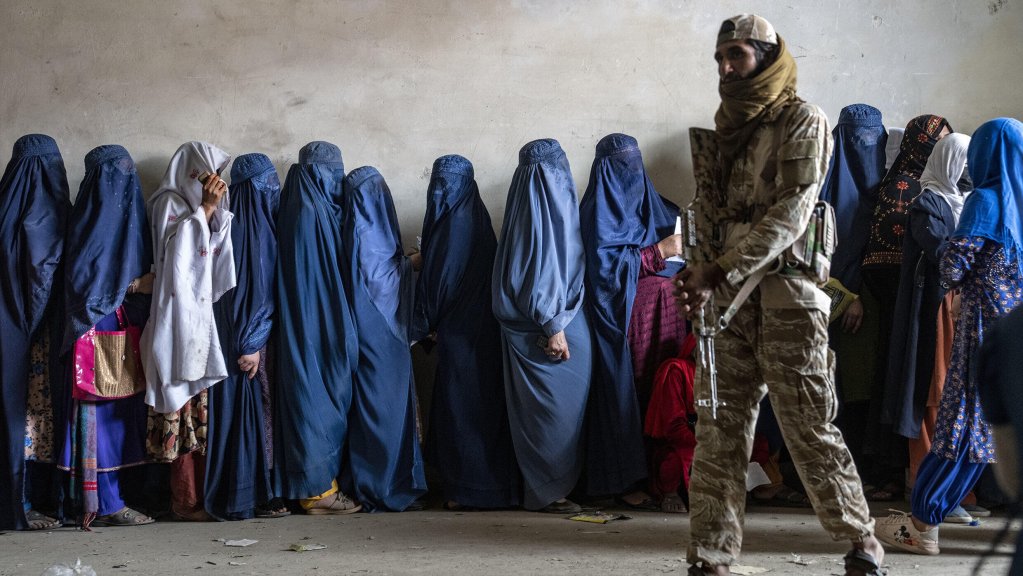Afghan nationals are being offered a one-time payment of between 2,500 to 10,000 euros if they withdraw from the German federal admission program for vulnerable Afghans, after which they will be permanently disqualified from applying again.
Afghan citizens currently waiting for relocation to Germany have reportedly been offered a one-time cash payment along with other benefits in exchange for withdrawing from the federal resettlement program, German news network RedaktionsNetzwerk Deutschland (RND) reported on Tuesday, November 4.
Afghan citizens who have a pending application in the admission program may be eligible for a one-time cash payment of up to 2,500 euros before departure or 10,000 euros after departure, along with in-kind benefits that may include medical care, accommodation, and meals, as well as logistical support.
However, a clear condition of the program is withdrawal from the federal admission program and permanent exclusion and disqualification from applying again. They then must return to Afghanistan or travel to a third country.
Around 2,100 Afghans in Pakistan are still waiting for relocation to Germany -- a third of them have received the payout offer from the German government in an email, reported the public broadcaster ARD. They have until November 17 to decide.
According to the German Agency for International Cooperation (GIZ), the state-backed international development organization, the incentive proposal is meant to ease growing pressure on Germany’s humanitarian admission program, which has been stalled for months amid delays and security reviews.
Read AlsoGermany ends admission freeze for vulnerable Afghans
Most affected: Afghans in Pakistan
Thousands of Afghan nationals who had been promised visas to Western countries, including Germany, have been sheltering in Pakistan.
For decades, Pakistan honored a tradition of accommodating waves of refugees from neighboring Afghanistan. The hospitality of refuge between the neighboring countries dates back to late 1979 during the Soviet invasion. Other political upheavals, such as the Afghan civil war in the 1990s and the fall of Kabul to the Taliban in 2021, have prompted Afghans to flee their country in search of security.

However, over the past year, Pakistan has ramped up its deportation of undocumented Afghans, some of whom had been living for decades in the country. In addition, the government stopped renewing visas for those who had been living in Pakistan, some as recognized refugees.
Data from the UN refugee agency UNHCR indicate that more than 1.5 million Afghans departed from Pakistan either voluntarily or forcibly between 2023 and mid-October 2025. An estimated three million Afghan nationals still reside in the country, with approximately 1.4 million holding proper documentation.
Germany, as one of the countries offering resettlement to Afghans, ended its months-long admission freeze for Afghans towards the end of August. However, only two applicants have been able to enter Germany through the regular process. The remaining 110 Afghan nationals who have arrived so far were only able to do so after challenging their visa denials in administrative courts, reported ARD.
Read AlsoAfghans seeking German visas in Pakistan fear deportation
Cost of repatriation
Another factor weighing down on the German government and across the European Union is the cost of deportations. Return of irregular migrants to their countries of origin remains one of the European bloc's most expensive migration measures.
Depending on the destination and security needs, official data indicate that returning one person can cost the German government between 5,000 and 15,000 euros. Routes to Afghanistan or Pakistan, which may require aircrew, medical staff, and police escorts, reportedly add up to the highest costs.

In addition, under the Resettlement, Emergency Assistance for Germany and German Assistance for Refugees in Pakistan or the REAG/GARP return assistance program, most individuals who are to be repatriated receive anywhere from 50 to 1,000 euros for return.
Meanwhile, despite widespread criticism, Germany has continued with talks with the Taliban to forge a formal deportation agreement over the deportation of Afghan nationals convicted of crimes.
In September, German legislator from the Christian Social Union (CSU), Alexander Dobrindt, confirmed that Germany intends to continue deportations to Afghanistan: "We will ensure that these flights continuously, regularly, and properly return criminals to Afghanistan.”
Germany maintains no official diplomatic relations with the Taliban, whose rule has been marked by blatant and systematic violations of human and women’s rights. The move has been criticized as possibly legitimizing the regime. However, supporters have defended the move, saying that it would allow Berlin to leverage a better guarantee of human rights in Afghanistan.
Read AlsoEU confirms 'contact' with Taliban in Afghanistan over migrant returns
Humanitarian assistance and entry to Germany
The takeover of the Taliban in 2021 signaled risks to Afghan nationals working with or for international organizations, who could face persecution for promoting democracy and human rights, as well as for their gender or sexual orientation.

File photo: Since their takeover, the Taliban has massively restricted every aspect of women's public life and movement | Photo: Ebrahim Noroozi / AP Photo
In support of Afghan nationals at potential risk, in October 2022, the German government rolled out a humanitarian admissions program to an estimated 45,000 Afghans and their family members, as well as former Afghan local employees who had worked for German organizations.
According to the Ministry of the Interior Foreign Office, as of April 2024, over 33,200 people have entered Germany so far. Of this number, more than 20,300 were reportedly local employees, including family members, while over 12,900 were other particularly vulnerable Afghans and their family members.
According to the Ministry of the Interior Foreign Office, as of April 2024, over 33,200 people have entered Germany so far. Of this number, more than 20,300 were reportedly local employees, including family members, while over 12,900 were other particularly vulnerable Afghans and their family members
Deportations amid clashes
Deadly clashes between the Taliban in Afghanistan and Pakistan have also prompted the Pakistani authorities to intensify their efforts to repatriate Afghan migrants.
The escalation, which has reportedly included police raids on Afghan-run shops and rented homes, spans all the way to the capital, Islamabad, and nearby Rawalpindi. Landlords, fearing legal ramifications, have evicted Afghan renters or refused lease renewals, forcing families to find new homes.
Read Also
